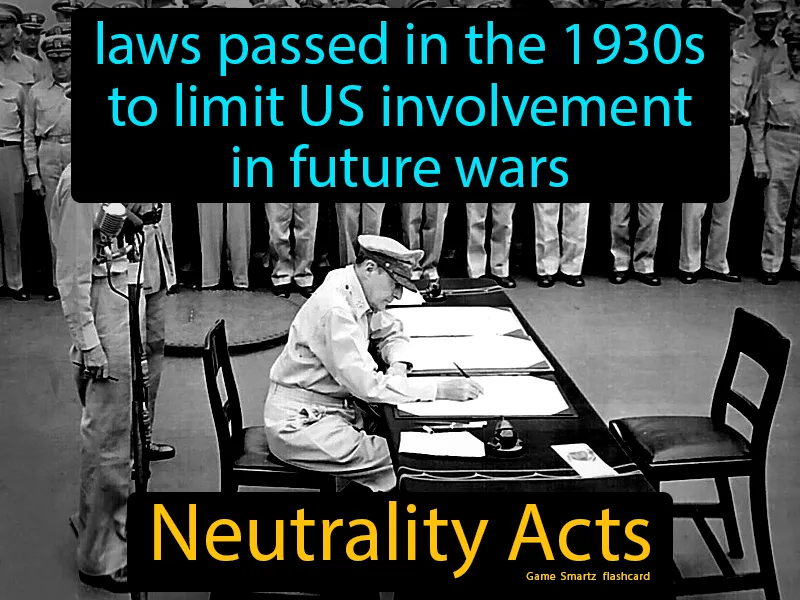Neutrality Acts
Neutrality Acts: Easy to understand
The Neutrality Acts were crucial because they reflected America's desire to avoid the mistakes that led to its involvement in World War I, aiming to keep the nation out of future conflicts. By restricting arms sales and loans to warring countries, these laws were meant to keep the U.S. neutral, highlighting the tension between isolationism and the growing threats abroad, like the rise of Nazi Germany. This tension is still relevant today as nations grapple with how much to engage in foreign conflicts and support international allies. For an average person, the ideas of the Neutrality Acts connect to current debates on military spending and foreign policy, influencing where tax dollars go and how the nation prioritizes peace or intervention. Understanding these laws helps people see the balance between staying safe at home and helping maintain global stability.

Practice Version

Neutrality Acts: Laws passed in the 1930s to limit US involvement in future wars. Neutrality Acts. The Neutrality Acts were designed to keep the United States out of future conflicts by restricting trade and interactions with warring nations.